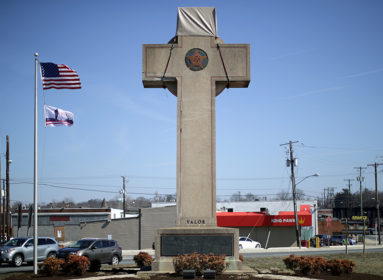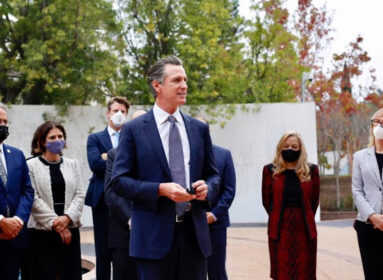Connecticut’s Jewish leaders weigh in on the President’s itinerary
On March 20, President Barack Obama will board Air Force One for a two-day trip to Israel – his first trip to the Jewish state since he was a candidate in 2008, and his first trip ever while in office. Of course, the President will no doubt spend a good deal of his time in talks with Prime Minister Benjamin Netanyahu and others — and Israelis are hoping he will address the Knesset, though the White House is still mum on the subject.
Political chit chat aside, the President will also take a bit of time to visit some sites — to experience Israel and her people. And so, recently we posed this question to some of Connecticut’s Jewish community leaders:
What is the one Israel experience you would choose to include in the President’s itinerary that you feel would give him a deeper, more complete understanding of the Jewish state and the Jewish?
If you would also like to take part in this discussion, send your thoughts (maximum 200 words) to editorial@jewishledger.com no later than Friday, March 1.
Dr. Jeffrey Shoulson
Doris and Simon Konover Chair in Judaic Studies
Director of the Center for Judaic Studies and Contemporary Jewish Life
UNIVERSITY OF CONNECTICUT, STORRS
I have little doubt that President Obama will be shown some of the most prominent and historic sites in Israel during his visit, places like the Western Wall, Yad Vashem, perhaps even Masada. And while these are all worthwhile stops, I would hope he might have time to visit a lesser known site, the Arava Institute for Environmental Studies. Despite its relatively small size, it represents a truly promising initiative in Israel today, a research and education facility that is seeking to find an alternative approach to what seems like the most intractable conflict between Jews and Arabs. What is especially exciting about the Arava Institute is that the peace it is seeking to help forge in the region is grounded in the most pressing global issue facing us today: the environment. By bringing Palestinians and Israelis together to work on solutions to very immediate issues like water scarcity and renewable energy, the Arava Institute is demonstrating that, despite everything that divides societies in the region, there are even bigger issues that join them. Alumni of Arava are now working in environmental groups and government ministries in Israel, Jordan, the Palestinian territories, and the United States, creating a network of personal cooperation in a region where such ties are rare. I would like to think that if the President had the opportunity to see the exciting work being done at the Arava Institute he might come away with a broader view of both the perils and the promises facing Israel.
Dr. Avinoam Patt
Philip D. Feltman Professor of Modern Jewish History
Director, Museum of Jewish Civilization
Maurice Greenberg Center for Judaic Studies
UNIVERSITY OF HARTFORD
The last time President Obama (then Senator Obama) visited Israel in summer 2008, his hosts took him to Yad Vashem, Israel’s Holocaust Memorial and Museum. However, I’m not sure he stopped by a quiet spot adjacent to Yad Vashem that is essential viewing for any guest visiting Israel and one of my favorite places in Israel: Mount Herzl, also known as the Mount of Remembrance. Har Herzl is the site of Israel’s national cemetery, home of the Herzl Museum, and burial spot to four of Israel’s prime ministers, Golda Meir, Yitzhak Rabin, Yitzhak Shamir, and Levi Eshkol, as well as other gedolei ha-uma – great leaders of the nation — including presidents and Knesset speakers of Israel. Other sections of the cemetery include memorials to Israeli victims of terror, the garden of the unknown soldier, and a memorial to the parachutists who infiltrated Europe during the Holocaust to organize resistance and aid in rescue, including Hannah Senesh and Haviva Reik. The Herzl Museum provides an overview of the life of Theodor Herzl and a greater understanding for the vision that would turn the Zionist dream into a reality. Any visitor to the military cemetery will appreciate the bravery and self-sacrifice that protected that dream, as well as the peaceful solitude found in the groves of pine trees in the Jerusalem Forest. President Obama would do well to pay a visit to this hidden treasure in the hills of Jerusalem.
Rabbi Jeffrey Glickman
Temple Beth Hillel
SOUTH WINDSOR
Hadassah Hospital. Here is why: President Obama has an understanding of healthcare.
Hadassah Hospital is funded by Jewish women around the world, and for decades this hospital has exemplified many values.
Hadassah is one of the most advanced medical facilities in the world.
Hadassah offers free medical assistance to those who can’t pay and serves many, many Palestinians.
This is the embodiment of what Peace can look like. We all contribute towards the common good.
Gary Jones
Director, Connecticut Region
Anti-Defamation League
HAMDEN
To provide President Obama with a deeper, more complete, understanding of the Jewish State and the Jewish people, I would ask him to stand in a makolet (a corner market, similar to a bodega, which is found every few blocks in many Israeli cities) and simply listen to the conversations for a few hours.
Israelis are talkers, and they are not shy about voicing their opinions on almost any subject. Listening to average Israelis would provide him with great insight into what they care about. He would see that, although politics and security concerns permeate Israeli society and many of their discussions, these concerns neither define Israelis nor weigh them down.
In addition, the President could not help but note the lively and diverse perspectives on the issues that Israelis convey, thus reminding him that Israel is a model exemplar of free speech, free thought and openness that we Americans value so highly. He may also hear more than a few statements reflecting less than flattering perspectives on their politicians, another bit of common ground shared by our countries. Just as important, his listening will enable him to see first-hand the great passion and enthusiasm that Israelis bring to the issues of the day, whether they relate to peace and security, or just about anything else. He will come to understand the great joy that Israelis feel in living life, and in living in the Jewish homeland.
If he listens closely, he may also begin to have a better idea of how the Jewish people have survived so long against such great odds, and why Israel and the Jewish people will continue to survive and thrive notwithstanding the ongoing unprecedented threats that Israel and the Jewish people continue to face this very day.







 Southern New England Jewish Ledger
Southern New England Jewish Ledger


















